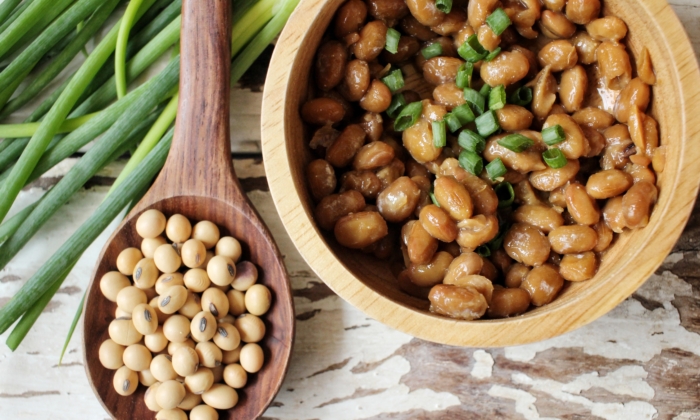
Natto is gaining attention as a modern health food. The Japanese are the longest-lived people in the world today, and one of the secrets to their longevity is their consumption of natto. Prevention of arteriosclerosis, cerebral infarction, and myocardial infarction Anti-aging effects Improved memory Prevention of osteoporosis Prevention of cancer Enhanced skin health Protection against colds and food poisoning Support for digestive health Weight loss Natto’s most distinctive feature is its sticky strands, which are made of glutamic acid polymer synthesized by Bacillus natto from soybeans.
These strands help protect the stomach lining, facilitate the smooth passage of food and waste through the gut, and promote the elimination of toxins from the body. Bacillus natto can inhibit the activity of harmful bacteria, while simultaneously promoting the growth of beneficial bacteria. 1.

Promotes Digestion 2. Prevents Osteoporosis 3. Prevents Blood Clots Incorporating natto-fermented products, along with natural ingredients like green onions and garlic, into your diet can effectively prevent blood clot formation, thereby reducing the risk of cerebral infarction, myocardial infarction, and other vascular diseases.
4. Prevents Cancer 5. Enhances Memory 6.
Supports Weight Loss Natto is generally most beneficial when eaten in the evening. For most people, around 1.59 ounces (45 grams) per day is sufficient to obtain its health benefits.
For those with cardiovascular disease or thrombosis, increasing the intake to approximately 3.17 ounces (90 grams) daily is recommended for enhanced benefits. Impaired kidney function: Natto is made from soybeans, which are high in protein and can place an additional burden on the kidneys.
Gastrointestinal diseases: People with stomach ulcers, dyspepsia, gastritis, or frequent stomach pain should limit their consumption of natto, as it contains a high amount of dietary fiber, which can place a significant burden on the stomach. Gout: Natto is a soybean product high in purines, which can exacerbate gout symptoms. Blood clotting disorders or taking anticoagulant medication: Natto is not recommended for individuals with bleeding wounds or those recovering from surgery.
Additionally, it may interfere with the effectiveness of anticoagulant medications. On antihypertensive medication: Nattokinase can enhance the effects of blood pressure medications, potentially leading to excessively low blood pressure. Therefore, it is advisable to avoid eating natto concurrently with these medications.
Individuals taking blood pressure medication should consult their primary care physician before consumption..













